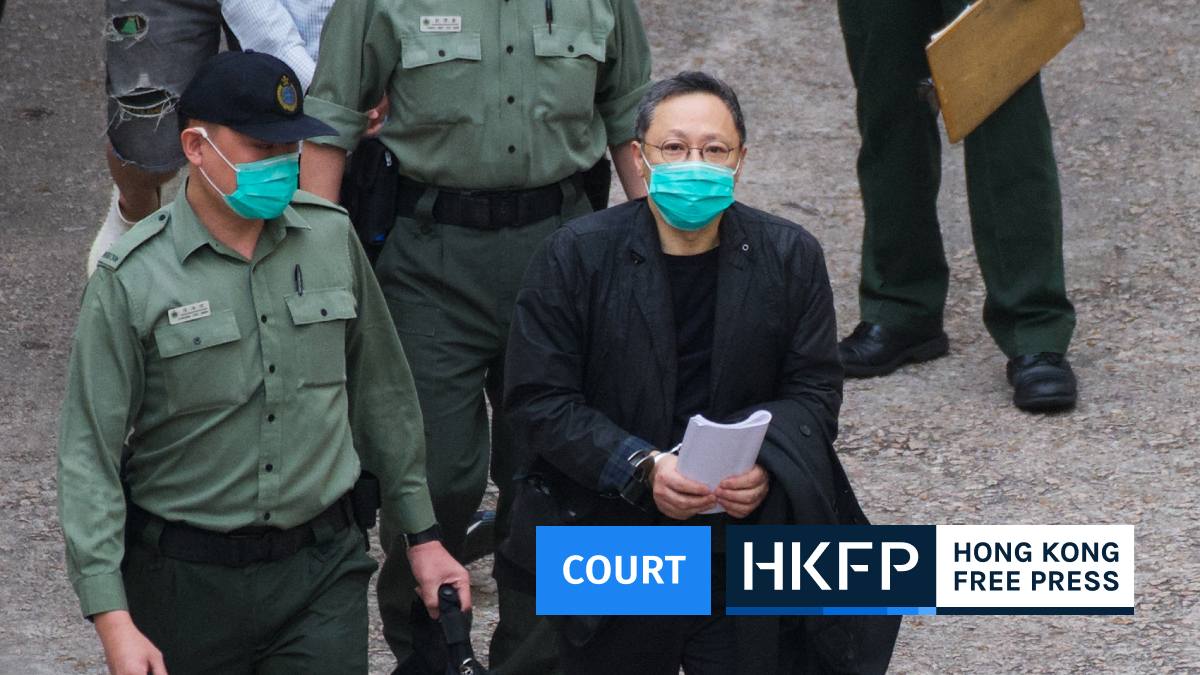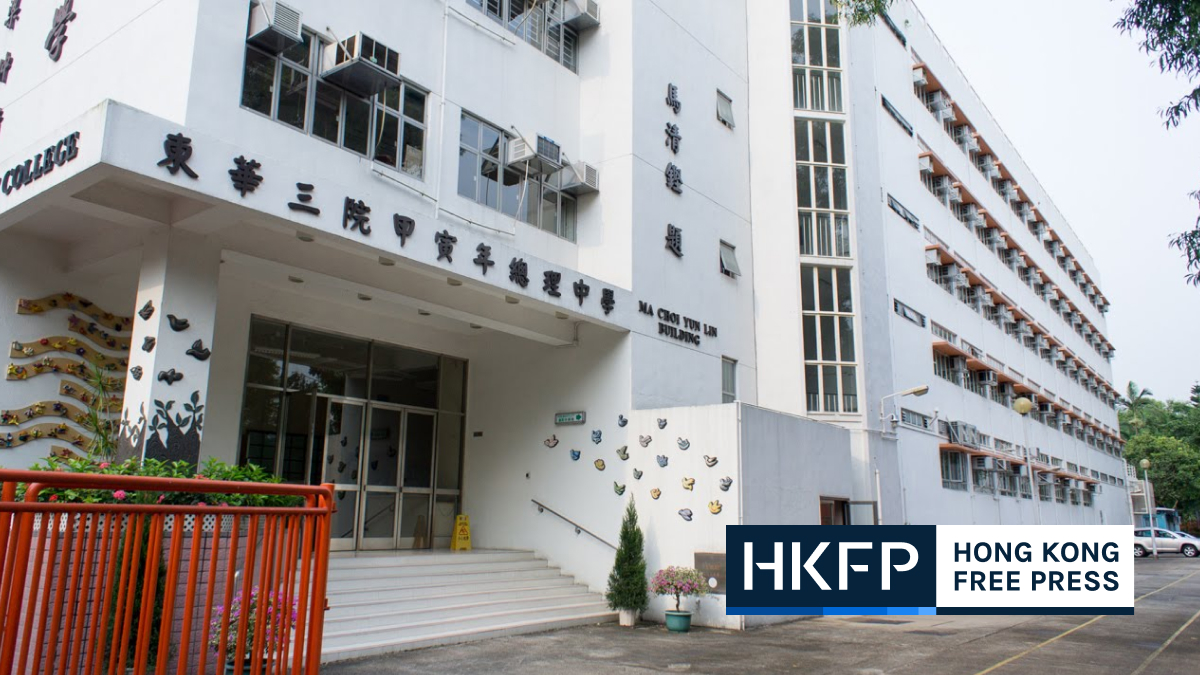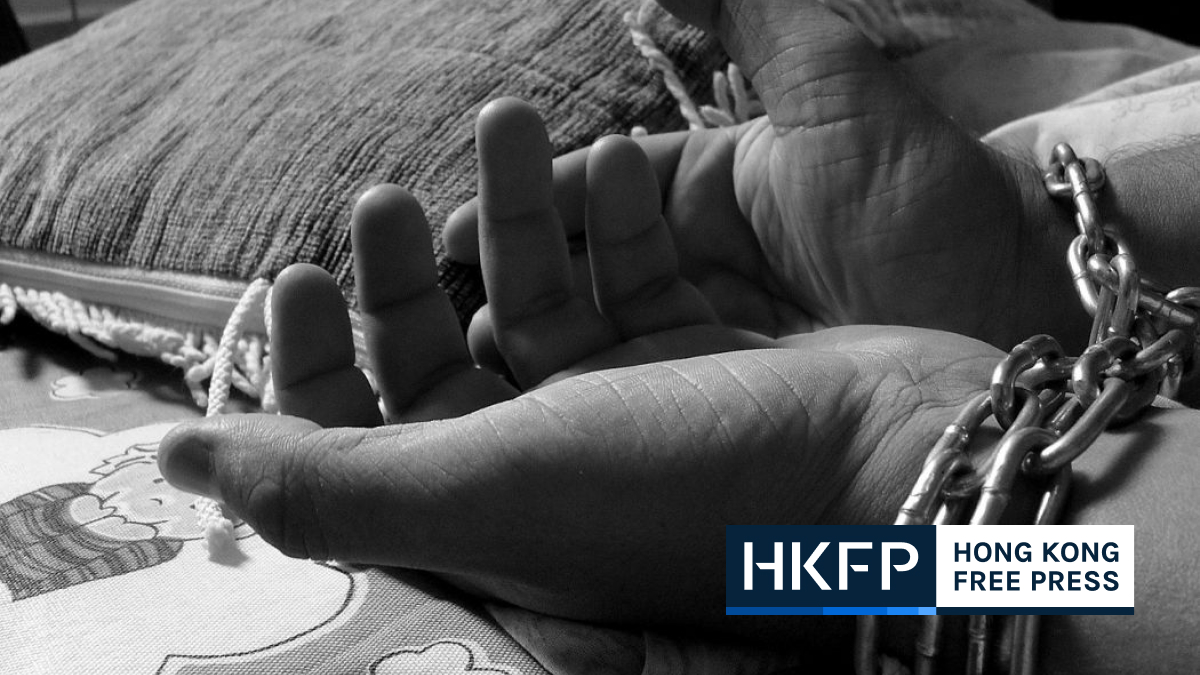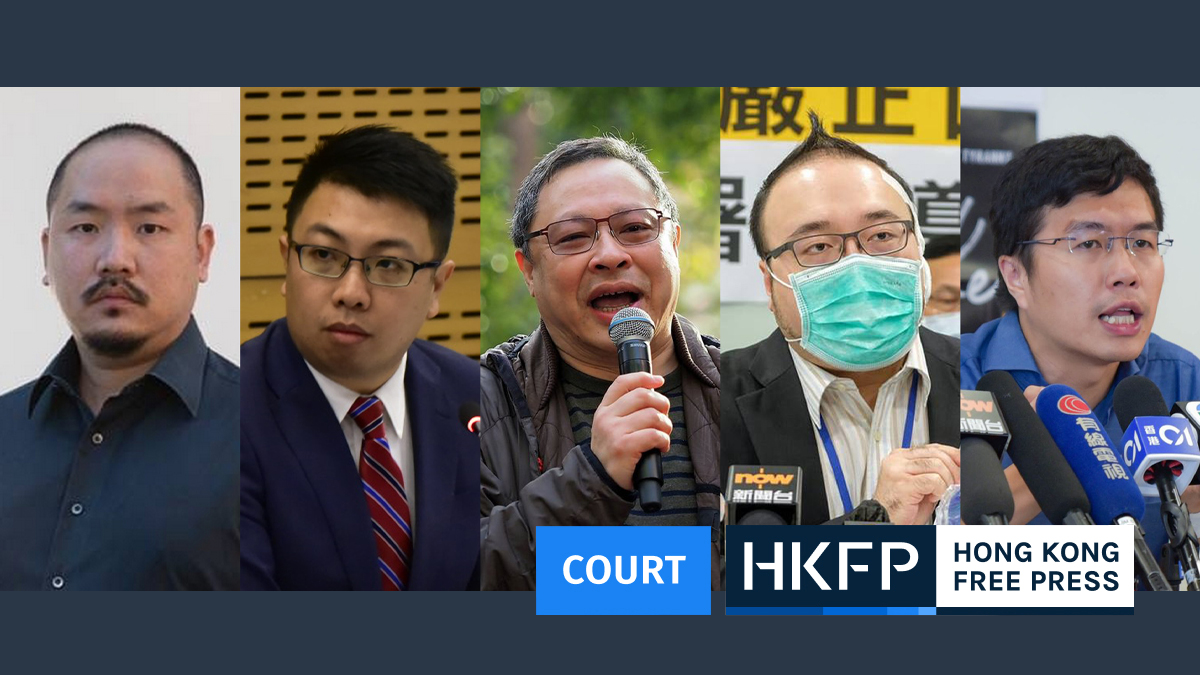China’s intelligence agency has called the landmark case involving 47 Hong Kong pro-democracy figures a “major test” of national security and rule of law.
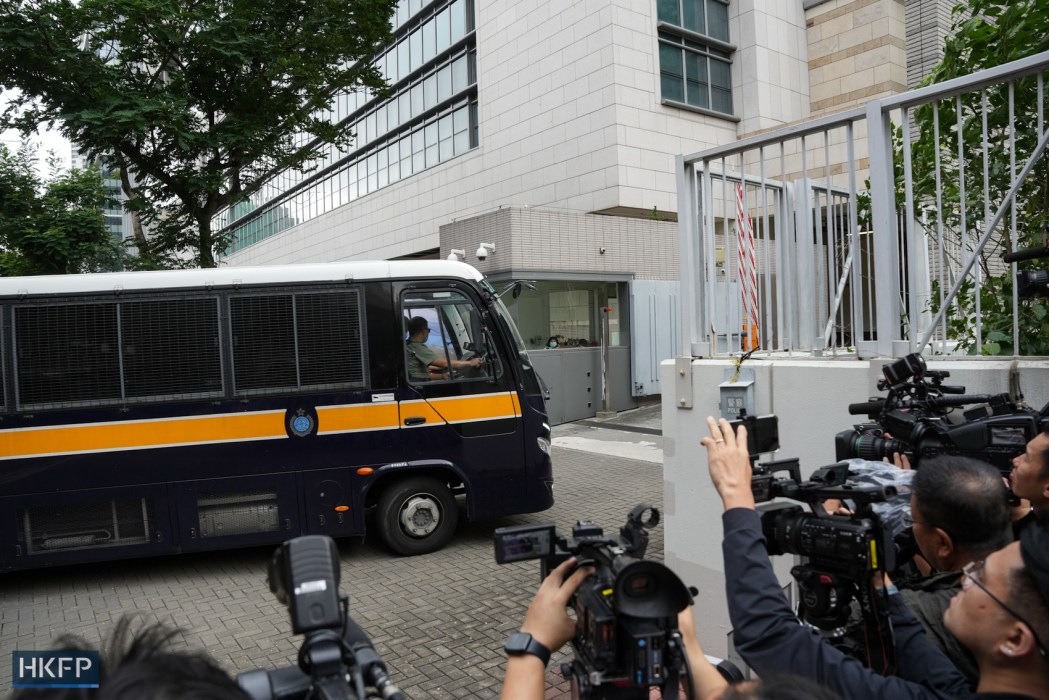
The Ministry of State Security on Tuesday also said the verdict in the trial of the 16 defendants who pleaded not guilty to conspiring to commit subversion was a deterrent to “anti-China forces and foreign forces.”
“Those who dare to challenge the bottom line of China’s national security will be severely punished by the law,” the ministry said in a Chinese-language post on WeChat.
Thirty-one defendants had earlier pleaded guilty to taking part in the conspiracy over their roles in an unofficial primary election in 2020. The High Court last month found 14 others guilty and acquitted two after a trial that lasted 118 days.
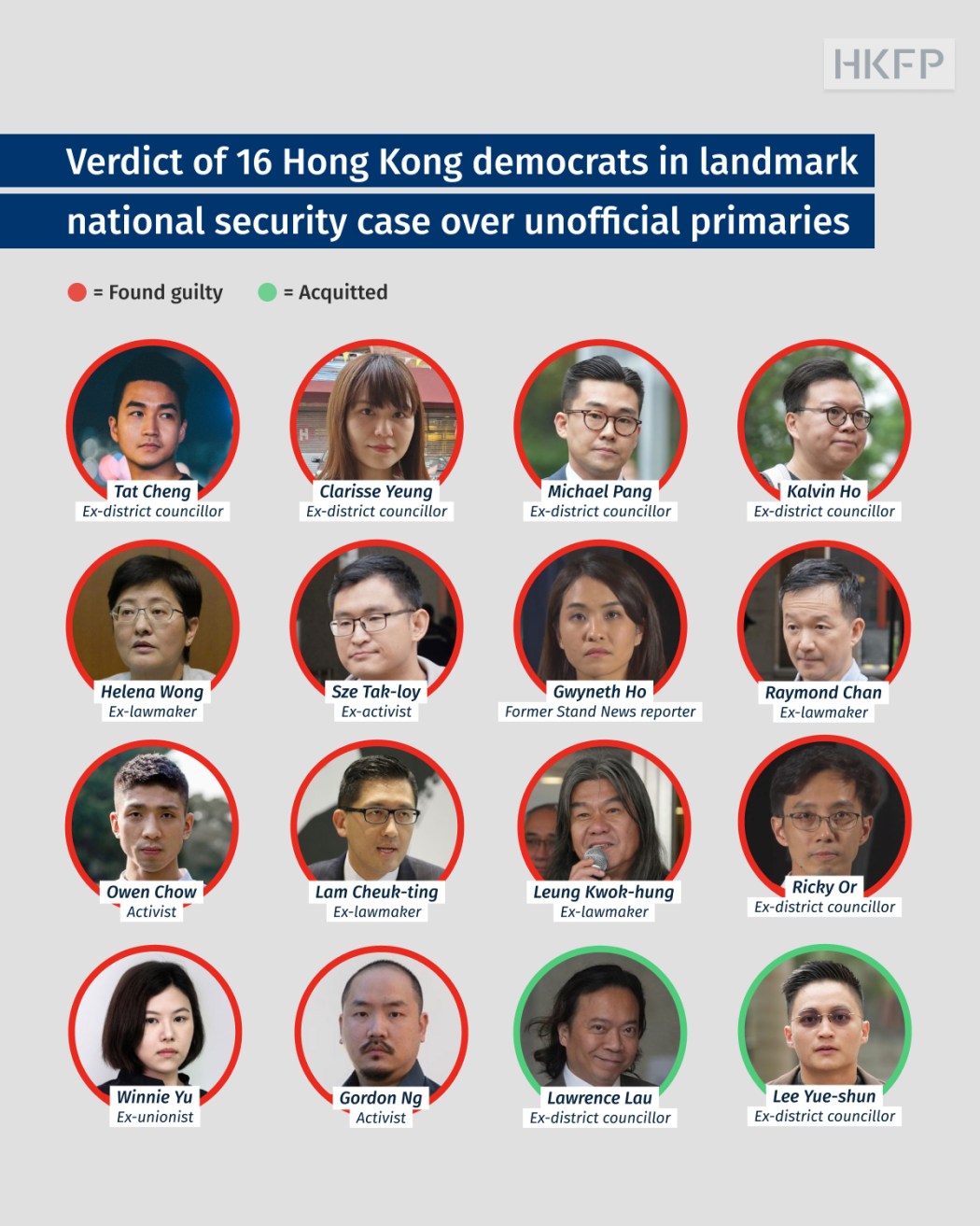
Tuesday’s remarks marked the first time the ministry, which is in charge of the country’s intelligence activities, weighed in on the city’s largest national security case to date. The court is set to hear mitigation pleas from the 45 defendants convicted under the Beijing-imposed security law from June 25.
“Among the 45 people that were convicted, there were instigators of ‘black-clad violence,’ participants of the illegal ‘Occupy Central’ campaign, and leaders of anti-Hong Kong organisations,” the ministry said, referring to the 2014 civil disobedience campaign also known as the Umbrella Movement and the protests and unrest in 2019.
“A criminal and wicked idea brought them together and led them on a path of no return,” it added.
The ministry singled out former law professor Benny Tai, the key organiser of the primary election, as the “chief culprit” of the scheme that it said was directed at sabotaging the functioning of the city government and overthrowing state power. Tai was among those who pleaded guilty.
“The anti-China forces led by Benny Tai… through illegally trying to obtain a majority in the Legislative Council and vetoing the government budget indiscriminately, would create a crisis in governance,” the ministry said.
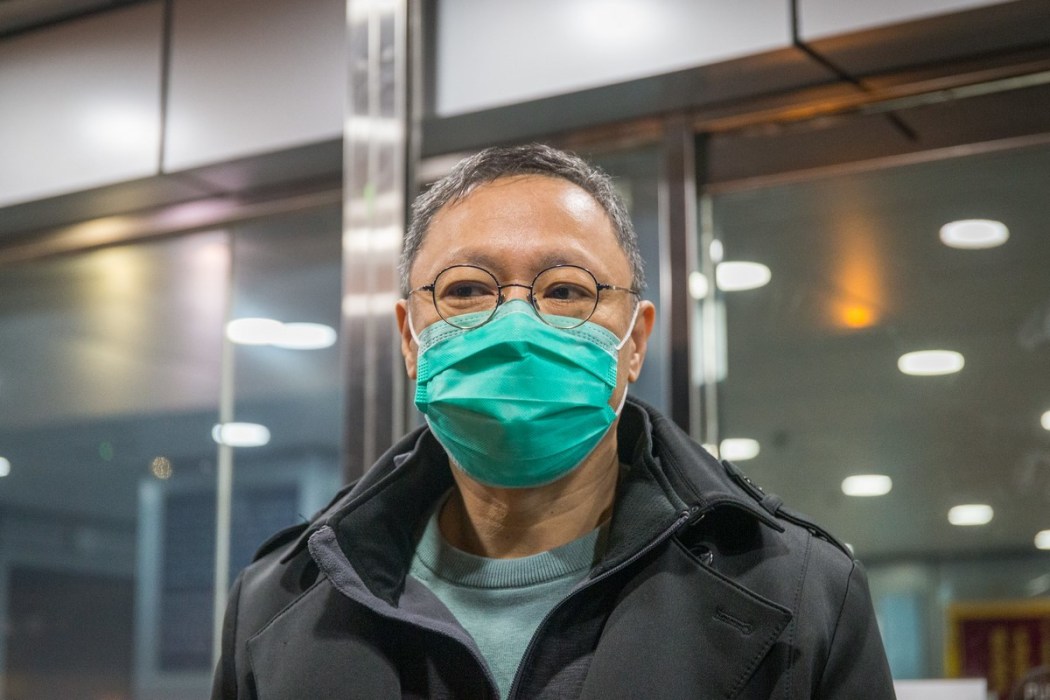
Although a key argument of the defence was that the power to veto the government budget is written into Hong Kong’s mini-constitution the Basic Law, the three judges presiding over the case ruled that the abuse of such power would create a “constitutional crisis” and therefore would be illegal.
The ministry praised the lengthy trial as it “balanced the need to safeguard national security and to protect the rights and freedoms of the defendants.” Most of the 47 democrats have been detained since being taken into police custody on February 28, 2021, ahead of a marathon bail hearing.
The judgement had set out clear rulings of major legal disputes under the security law, the ministry said. “The court’s rulings clarified the definition and regulation of ‘subversion’… It would serve as an important reference to future [national security] cases and have far-reaching implications,” it added.
Western governments including the UK, the EU, and Australia condemned the verdict. The US had already imposed sanctions on six Chinese and Hong Kong officials in response to the arrests in 2021, with a congressional committee urging further sanctions to be imposed following the verdict.
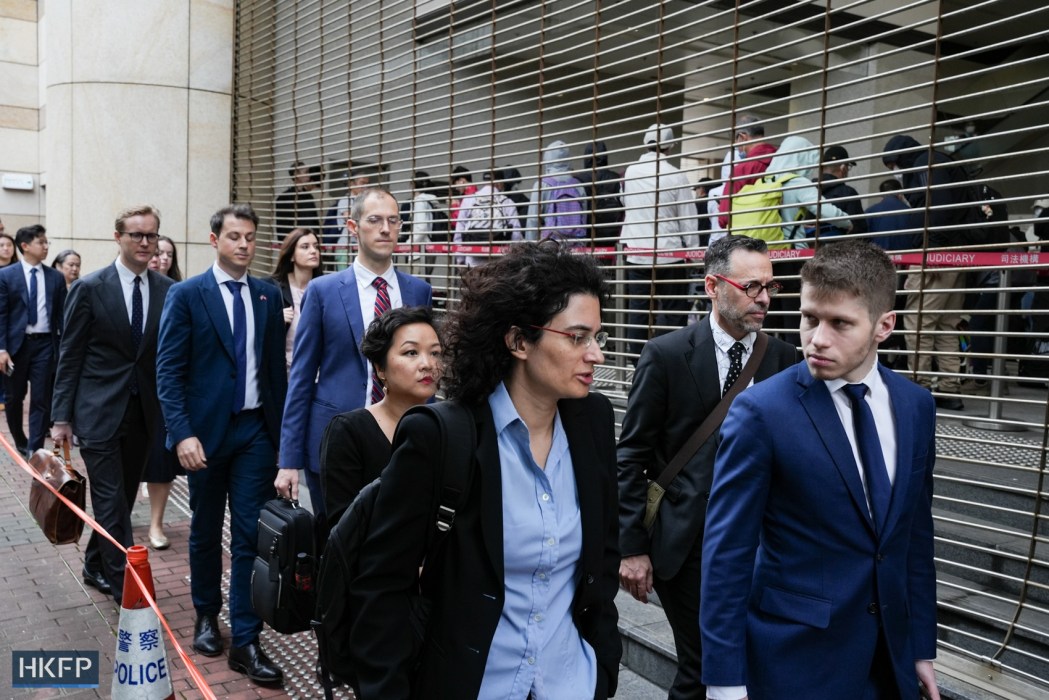
The ministry said such calls amounted to interfering in China’s internal affairs and were “serious violations of international laws and common principles governing international relations.”
They would only make people aware of foreign forces’ “despicable scheme of leveraging Hong Kong to suppress China,” it added.
The defendants are expected to receive sentencing after their mitigation hearings, which could carry up to life behind bars.
Last week, the Department of Justice said it had filed an appeal against the acquittal of barrister Lawrence Lau, but not that of social worker Lee Yue-shun. Both Lau and Lee are former district councillors.
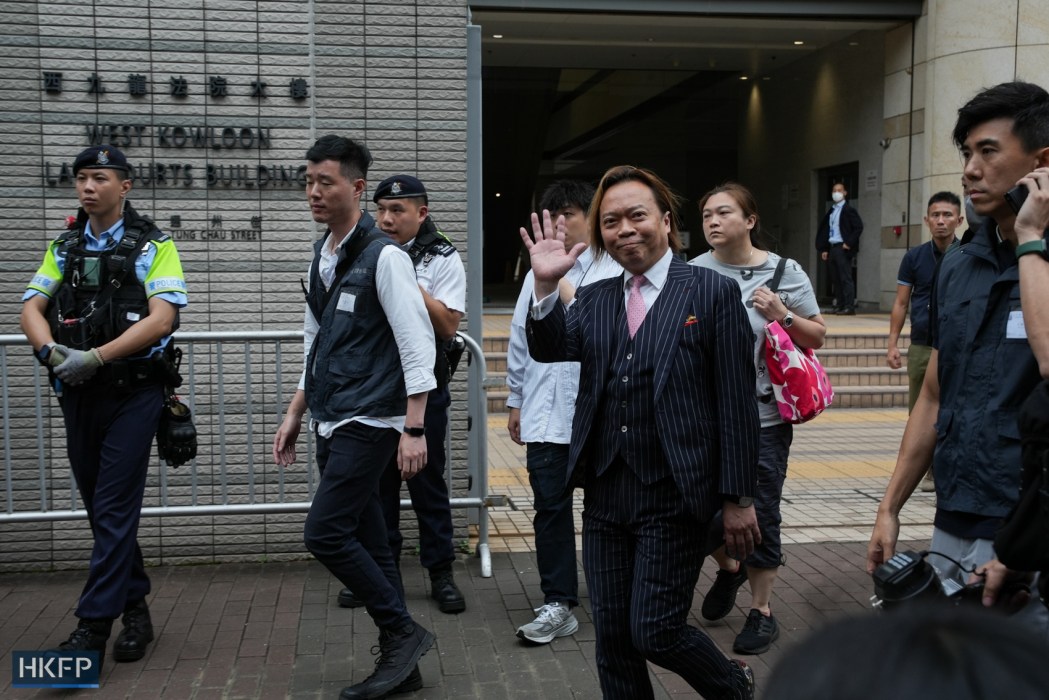
Beijing inserted national security legislation directly into Hong Kong’s mini-constitution in June 2020 following a year of pro-democracy protests and unrest. It criminalised subversion, secession, collusion with foreign forces and terrorist acts – broadly defined to include disruption to transport and other infrastructure. The move gave police sweeping new powers and led to hundreds of arrests amid new legal precedents, while dozens of civil society groups disappeared. The authorities say it restored stability and peace to the city, rejecting criticism from trade partners, the UN and NGOs.
Since then, 128 people had been convicted under the security law, according to the security bureau.
Support HKFP | Policies & Ethics | Error/typo? | Contact Us | Newsletter | Transparency & Annual Report | Apps
Help safeguard press freedom & keep HKFP free for all readers by supporting our team





















